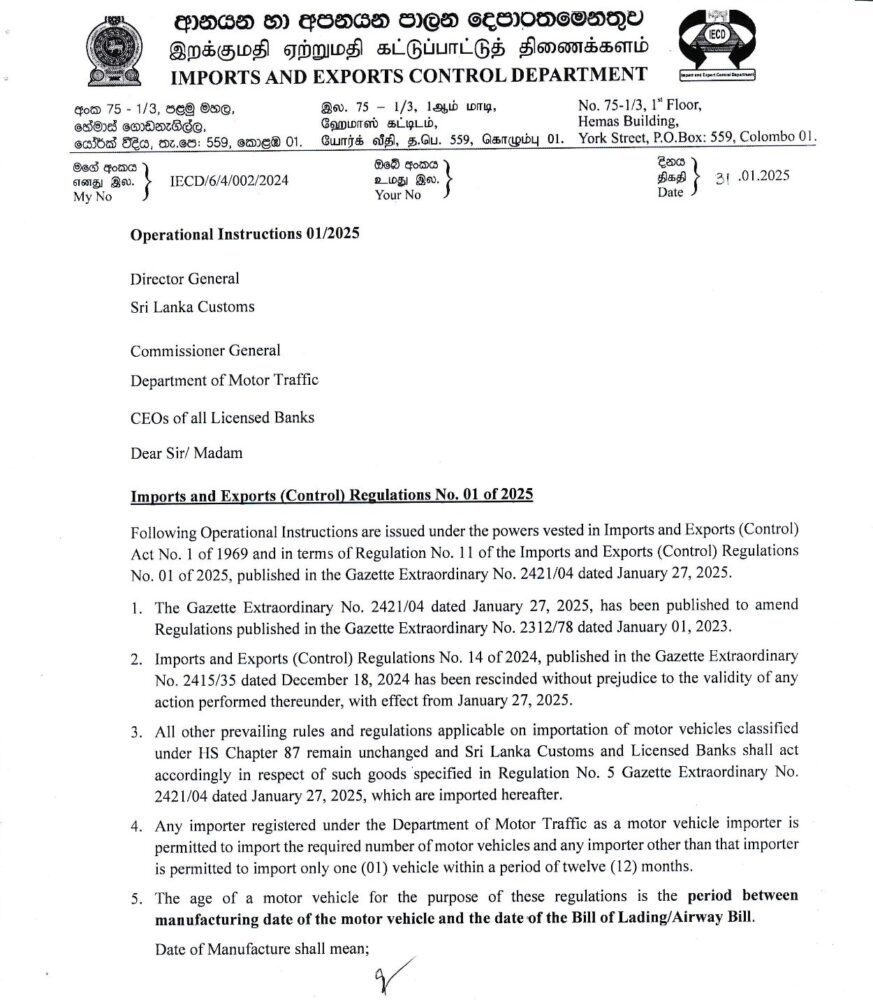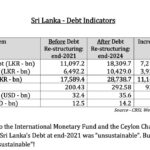The Sri Lankan government has introduced new operational instructions under the Imports and Exports (Control) Regulations No. 01 of 2025, significantly affecting motor vehicle importation. These changes, detailed in the Gazette Extraordinary No. 2421/04 dated January 27, 2025, are aimed at regulating vehicle imports while maintaining existing policies under HS Chapter 87.
Under the new rules, motor vehicle importers registered with the Department of Motor Traffic are permitted to bring in the required number of vehicles. However, individuals who are not registered importers will be limited to importing only one vehicle every 12 months.
Additionally, the government has set strict conditions regarding the age of imported vehicles. The vehicle’s manufacturing date will be determined based on certificates from manufacturers or export inspection authorities. If only the year of manufacture is indicated, the official date will be considered as January 15 of that year.
Enforcement and Compliance
Sri Lanka Customs will closely monitor vehicle imports and ensure compliance with the new regulations. The authorities have mandated that motor vehicles classified under specified HS codes and imported through Letters of Credit (L/C) established between December 18, 2024, and January 27, 2025, must arrive in Sri Lanka by July 31, 2025. Any vehicle imported in violation of these rules may be re-exported.
Furthermore, the Department of Motor Traffic and licensed banks have been instructed to maintain a database to track vehicle imports. The new system will prevent unregistered importers from clearing more than one vehicle annually. Licensed banks are required to ensure that Letters of Credit for vehicle imports are issued only to registered importers, preventing misuse of duty concessions under various government circulars.
Strict Payment Regulations
The only accepted payment method for motor vehicle imports remains the Letter of Credit (L/C), in line with previous regulations. The use of Usance Letters of Credit— which allows deferred payment—has been strictly prohibited. Banks must report all L/C transactions daily to ensure transparency and adherence to the new rules.
Government Oversight and Next Steps
The new regulations are part of the Sri Lankan government’s broader strategy to control imports and manage foreign exchange reserves. The Department of Motor Traffic, Sri Lanka Customs, and licensed banks have been tasked with implementing these regulations effectively.
Stakeholders, including vehicle importers and banking institutions, are expected to align with these measures to ensure smooth enforcement. The government has also sought the cooperation of the Central Bank to provide specific directives to commercial banks for implementing these rules.
With these new regulations in place, Sri Lanka aims to balance trade controls while ensuring fair access for authorized importers. However, industry experts caution that tighter import restrictions could impact the availability and pricing of vehicles in the market.















